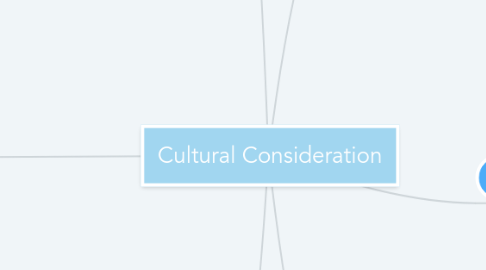
1. Communication Protocol
1.1. Outlines the types of information to be communicated to the organization, channel, as well as identifying the person(s) responsible for communicating particular topics.
1.2. Language is an integral (important) part of communication. It reflects a culture.
1.3. Using the right communication protocols shows professionalism and can help businesses stand out from competitors.
1.4. Example of communication protocols in Australia include:
1.4.1. Shake hands when meeting and leaving
1.4.2. Exchanging business cards is common
1.4.3. Appreciate directness, brevity and opinion
1.4.4. Active listener
1.4.5. Sightseeing and sports are good conversational topics
2. Religion
2.1. Is a system of common beliefs , values or attitudes concerning a being or a system of thought that people consider to be sacred, divine, or the highest truth.
2.2. Influences culture, and therefore business and consumer behavior, in various ways.
2.3. Determine beliefs, the way people interact, lifestyles and in terms of marketing, sales and spending patterns
2.4. MNC need to understand local religion because:
2.4.1. Muslim business ethics
2.4.2. Buddhist business ethics
2.4.3. Christian business ethics
2.4.4. Jewish business ethics
2.4.5. Indigenous business ethics
3. Holidays & Celebrations
3.1. often tied to religion
3.2. MNC need to observe because:
3.2.1. availability of clients and staff
3.2.2. participate in local festivals., helps to improve the morale & relationship between of local employees.
3.2.3. blending into local culture also helps to win trust of local employees
4. Education
4.1. Education, either formal or informal, plays a major role in the passing on and sharing of culture.
4.2. Assessed using literacy rates, school enrollment, qualitative aspects of education (skills vs knowledge).
4.3. Needs to know because:
4.3.1. It affects the availability of skilled of workers
4.3.2. It affects the business functions
4.3.3. It determines marketing strategies
4.3.4. It might result in knowledge divide
5. Customs
5.1. Manners and customs are ways of behaving and conducting oneself in public and business situations.
5.2. AFFECT: eating habits, meal times, working hours, holidays, etc.
5.3. MNC needs to know about customs because as it shows sign of respect
6. Business Etiquette
6.1. Etiquette is a code of behaviour that describes expectations for social behaviour according to contemporary (modern) conventional (normal) norms within a society, social class, or group.
6.2. Elements of business etiquette: clothing, conversation, greetings, form of address and time and space.
6.3. Examples
6.3.1. Brazil – use physical contact during conversations
6.3.2. Canada – punctual
6.3.3. China – decline gift three times before accepting
6.3.4. India – avoid using NO during business discussion
6.3.5. Japan – business card
